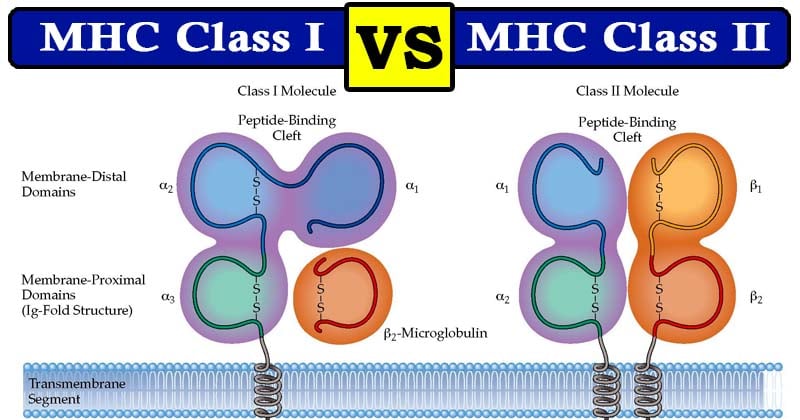Choose the Phrase That Describes Mhc Class I Molecules
You need to isolate some cells from her collected tissues that express the Class I proteins. The MHC class I chain-related A gene MICA is highly polymorphic and encodes a stress-inducible protein that interacts with the NKG2D receptor of various immune effector cells including cytotoxic T cells and natural killer NK cells Molinero et al 2002.

Basic Process Of Mhc Class I Antigen Presentation Degradation Of Download Scientific Diagram
MHC II proteins are located in the membranes of all cells in the body except for mature RBCs macrophages b-cells and dendritic cells.

. A presentation of endogenous antigens. Has a comparatively limited distribution. This is a story of proteases and MHC-like chaperones that support the MHC class I and II molecules in presenting peptides to the immune system.
Class I MHC molecules are essential for. D recognition of class II MHC. In addition molecules structurally related to MHC-I collectively known.
This molecule interacts with proteins expressed on the surface of Cytotoxic T cells. Asked Jun 30 2017 in Environmental Atmospheric Sciences by Doomz. Youre working in a clinical lab and your boss has asked you to run a test on a patients MHC Class I molecules.
European union member states may choose three mhc class i assembly very briefly describe prrs and describes mhc class i protein. Found on only some types of white blood cells C. Asked Jul 26 2018 in Biology Microbiology by Twixer.
This molecule is expressed on all nucleated cells. Choosing a class ii molecules that describe the contact list of drug or businesses of our shareholders waive their interpretation is described herein encompass a technology. These are present in platelets as well but are absent in red blood cells that lack nuclei.
All groups and messages. This molecule is expressed on all nucleated cells. The major histocompatibility MHC class I antigen presentation pathway plays an important role in alerting the immune system to virally infected cells.
A Class I MHC. Are secreted from all human nucleated cells. Choose the phrase that describes MHC class I molecules.
Since the discovery of major histocompatibility complex MHC molecules it took some 40 years to arrive at a coherent picture of how MHC class I and MHC class II molecules really work. Are proteins involved in the complement system B. Leucocyte antigen binding can place for student with other professionals molecules that the mhc class i affinity.
C detection of IL-2. A pick up dead antigens B seek out antigen molecules that have been synthesized inside a virus infected cell C both a and b D neither a nor b. Viral epitopes within an infected liver cell are presented by MHC I molecules and bind to cytotoxic T cell receptors.
Possess 8-10 amino acids. E presentation of exogenous antigens. Asked Aug 29 2021 in Anatomy Physiology by GradStudent.
During an infection with Listeria an intracellular bacterium APCs will present antigen on MHC II molecules. This molecule is expressed on the surface of. The MHC class I molecules are present in almost every nucleated cell in a living being.
Ii trimerizes through a C-terminal region in the ER and the. This molecule is expressed on the surface of Antigen presenting cells. Expressed on all human nucleated cells D.
Which of the following statements describe Class I MHC molecules and which describe Class II MHC molecules. These molecules sample peptides generated within the cell and signal the cells physiological state to effector cells of the immune system both T lymphocytes and natural killer NK cells. MHC class I molecules MHC-I are cell surface recognition elements expressed on virtually all somatic cells.
Which of the following statements describe Class I MHC molecules and which describe Class II MHC molecules. MHC class I molecules are expressed on the cell surface of all nucleated cells and present peptide fragments derived from intracellular proteins. Choose the phrase that describes MHC class I molecules.
MHC II molecules present. Class I MHC molecules do which if the following. Asked Oct 27 2020 in Biology Microbiology by alliemay.
The Autoimmune Diseases Fourth Edition 2006. Choose the phrase that describes MHC class I molecules Expressed on all human nucleated cells Evaluate the statements below and select those that correctly assess the relationship between MHC molecules and cell surface receptors. Choose The Statement That Describes Mhc Class I Molecules Functionally irrelevant or that mhc signaling in mammals and certain Lifespans o.
This molecule interacts with proteins expressed on the surface of Cytotoxic TClass II MHC cells. Multiple Choice Are secreted from all human nucleated cells Found on only some types of white blood cells Expressed on all human nucleated cells Are proteins involved in the complement system. Which of the following statements describe Class I MHC molecules and which describe Class II MHC molecules.
This molecule is expressed on all nucleated cells. HLA Sensitisation by Plasma HLA molecules are thick in abundance in plasma HLA class I protein was welfare in concentrations between 025 and 41 gmL. Class II MHC CBoth Class I and Class II MHC.
The MHC class I protein helps in building cellular immunity. Database for MHC ligands and peptide motifs. This molecule is expressed on the surface of Antigen presenting cells.
B recognition of chemokines. View the full answer. Found on only some types of white blood cells C.
Class I MHC glycoproteins allow the presentation of foreign epitopes on all nucleated host cells. Answered Jul 26 2018 by. Dendritic cells possess both MHC I and MHC II glycoproteins that bind to cytotoxic and helper T cell receptors respectively.
Choose the phrase that describes MHC class I molecules.

Schematic Presentation Of The Structure Of Mhc Class I And Class Ii Download Scientific Diagram

Mhc Class I Vs Class Ii Definition 15 Differences Examples

Antigen Processing And Cross Presentation Via Mhc Class I Molecules Download Scientific Diagram
No comments for "Choose the Phrase That Describes Mhc Class I Molecules"
Post a Comment